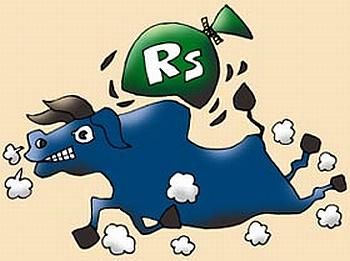 Venture Capital firms are trying to invest very early in start-ups as competition increases to get in at the seed-stage.
Venture Capital firms are trying to invest very early in start-ups as competition increases to get in at the seed-stage.
With a notable surge in start-up talent and activity in India and competition getting hotter, venture capital (VC) companies such as Tiger Global and Sequoia Capital are investing quite early, and closing deals faster.
Earlier, these funds were coming at Series-B rounds of funding; now, many participate in Series-A stage.
Tiger Global, which invests at Series-B stage (Flipkart, Myntra) or later (Carat Lane, Shopclues), has invested at Series-A stage in warehousing automation venture Grey Orange Robotics.
Sequoia Capital, which invests across stages, has done many seed-stage deals up to $2 million.
Tiger and Sequoia are not alone.
Others are also tweaking their strategy to invest early.
These include funds such as Matrix Partners, Saif Partners, Nexus Ventures, and Mayfield. Some of these funds were investing $2 million-plus in start-ups earlier; today, they are investing $500,000 to $2 million in start-ups, which might not have revenues, but has some validation. VCs are getting aggressive and trying to invest start-ups at the seed-stage.
Sequoia and Nexus Ventures invested $3million in food ordering mobile app Tiny Owl.
India Quotient and IDG Ventures invested $1.5 million in mobile payments firm Momoe while Haptik, an Android-based mobile app bagged $1 million in a first round of equity financing from Kalaari Capital Sanjay Nath, managing director, Blume Ventures, says: "Valuations are attractive at early early-stage, which is why more funds are coming at the seed stage."
In India, where it is tougher to do business, a start-up gets established by the Series-B stage, and it gets expensive for investors.
"The earlier they invest, the cheaper and more valuable is the call option," explains Suchi Mukherjee, chief executive officer and founder of Limeroad.
What this means is that if an investor comes in at the seed stage, it has the option to buy more - called pro-rata right - in subsequent rounds.
"By series-B, an investor can make up his mind, whether you want an inside round. If it is not such a great investment, it may not exercise its pro-rata rights," says an investor.
Besides, VCs coming at the seed stage need to invest only a small amount. This way, a VC can sprinkle its bets across different start-ups.
Fundamentally, investors are driven by the opportunity.
"They will flock where opportunities exist. There's a lot of talent in India, and you see new companies coming up in unexplored areas.
Technology and internet is here to stay. Mobile first as a space is here to stay," explains Vikram Godse, partner, Mayfield India.
"Whatever cynicism was there about e-commerce - it's a small market, people will not buy online - has all gone away.
It is not just about valuations, new-age players have grabbed market share from older players: Ola, Flipkart or Paytm. Things are moving fast, so VCs need to invest early," says Anand Lunia, founder and partner, India Quotient, which invests in early-stage start-ups.
Investors are also driven by rising internet penetration and the success of firms such as Flipkart and Snapdeal, proving that that these businesses are viable and scalable.
"A lot of business models, which have been successful in the US are proving successful in India: big data, cloud storage, transport, Internet. All spaces are getting traction and VC funding," adds Godse.
Many of these VCs have been investing early. Tiger had come in as a Series-A investor in Olacabs or Letsbuy, which was taken over by Flipkart.
What's new is the frequency and quantum of deals have gone up, and these deals have come into limelight, says Godse.
Deals are moving rapidly - some VCs are closing deals in a couple of meetings.
"Competition has increased in the seed round and maybe that is getting people to move faster," says Prashant Mehta, partner, Lightbox Ventures.
The start-ups are also getting better and performing.
"The companies we are meeting are further along relative to what they used to be five years earlier."
"People are thinking through their business models, products and teams," Mehta.
VCs are also backing seasoned managers, who have built organisation, team, and product and are starting their own ventures.
"If someone has great experience, background, and insight on how he plans to address a pain point, we are willing to invest at the idea stage also," says Mehta.
Start-ups are doing well, have better teams, and are becoming choosy: they are willing to wait for four months for better valuations.
"The power equation has tilted in favour of start-ups. I have seen start-ups saying they don't like the deal, please increase the valuation.
Two years back, they would take it," says Lunia.











